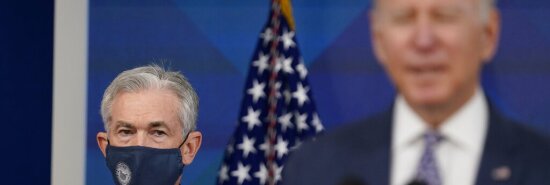
Inflation’s bill on Uncle Sam comes due
Tiana Lowe
Video Embed
While the Federal Reserve kept borrowing costs near zero for the decade following the Great Recession, government spending boomed and net interest costs on the national debt more than doubled. Then when COVID-19 hit, the Fed decided to finance the government’s decision to inflate the national debt by nearly 40%.
Contrary to the delusions of the Modern Monetary theorists who believed that we could sustain money for nothing forever, the bill has finally come due. In its attempt to quash near-double-digit inflation, the Fed’s interest rate hikes, the fastest since the 1980s, have increased the cost of payments on the federal debt by 41% in the first half of this fiscal year, according to a new release from the nonpartisan Congressional Budget Office.
MIKE PENCE IS OPEN TO REFORMING THE FED’S DUAL MANDATE
The budgetary problem is compounded by the fact that the Fed, which is losing money for the first time in 17 years, can no longer siphon remittances back to the Treasury, decreasing federal revenue by more than $60 billion.
Despite the problem of endless deficit spending being obvious to some of us, Uncle Sam didn’t hedge against the possibility that by causing inflation, the Fed would be forced to raise rates. Alas, the federal budget deficit reached more than $1 trillion over the last six months, with net interest reaching nearly 7% of all federal outlays this year, according to the United States Office of Management and Budget. In just three years, interest payments on the national debt are projected by the CBO to overtake defense spending. In the next 30, spending on net interest will become the most expensive program of the federal government, even beating Medicare and Social Security, which are both projected to outpace defense spending.
CLICK HERE TO READ MORE FROM THE WASHINGTON EXAMINER
With inflation this high and unemployment this stubbornly low, the Fed has only half of its mandate to fulfill. Will the federal government respond to the skyrocketing annual percentage rate on the taxpayers’ credit card bills? If the past presents any prediction, the problem will have to worsen before Congress begins to care.
